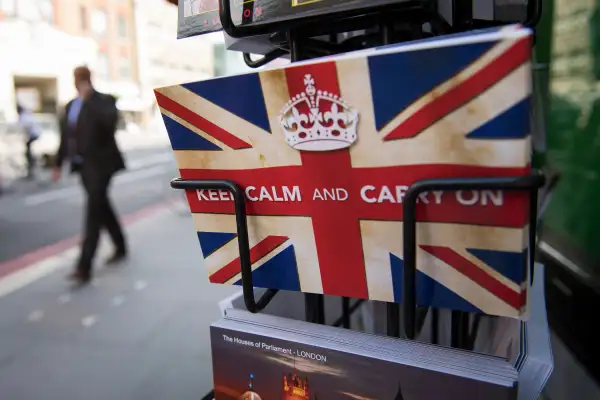3 Tips for Retirement Investors in a Post-Brexit World
Money is not a client of any investment adviser featured on this page. The information provided on this page is for educational purposes only and is not intended as investment advice. Money does not offer advisory services.

Buckle up. Britain’s vote to exit the European Union stunned Wall Street and overseas exchanges, not to mention the British government. The stock market is (over)reacting accordingly, so you probably don’t want to check your 401(k) statement today. Still, as a retirement saver, there’s no reason to panic. You have a major advantage over professional investors, after all—you’re not trying to hedge against the declining pound or unwind derivative bets. Just keep saving for the long-term in a low-cost, diversified portfolio. Easier said than done, of course, so here are three guidelines for riding out market upheaval.
1. Get some perspective. Yes, market plunges are unnerving, especially now that every tick of the Dow is transmitted by TV, smartphones and social media. If you’re feeling anxious, click away from the news and look at financial history—back in March 2009 the Standard & Poor’s 500 was down 40%, but the market rebounded and delivered a historic bull rally. No one knows where the market will go from here, which is all the more reason to stay diversified. But stocks remain your best bet for long-term growth.
2. Review your asset allocation. This is not the time to start tweaking your portfolio. But you do want to make sure that you asset mix fits your goals and risk tolerance. If you are finding it difficult to sit through this kind of market volatility, you may want to ratchet down your stake in stocks. But don’t sell during the crisis—instead direct future contributions to bonds and cash. (And if you’re nearing retirement, you should already be doing this.) Better yet, talk with a financial adviser who can help you find a more suitable allocation. Meanwhile, everyone else should consider rebalancing back into stocks if the market continues to sag.
3. Control what you can control. In the end, your own actions will have a lot more impact on your retirement security than what happens in London, Brussels or Washington. So stay focused on the areas you can have the most impact, including keeping your career skills up to date and saving as much as you can. Remember, over the long run, the amount the stash away in your 401(k) has a far bigger impact than the returns you earn. So don’t rely only on stocks to build your portfolio. Those monthly contributions remain the key a comfortable retirement.
